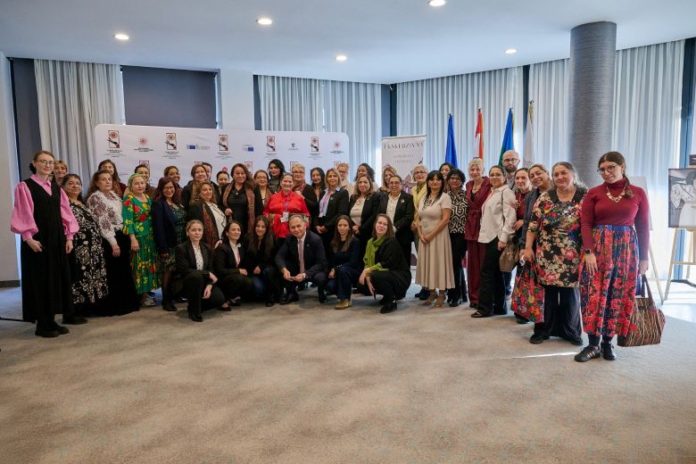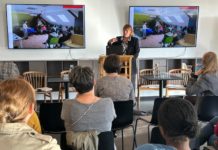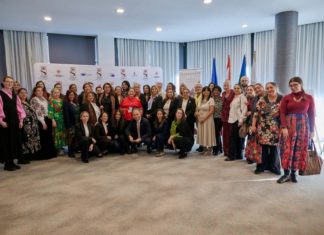In Zagreb, the Roma Women’s Conference was held from 25 to 28 November 2025, organized by the Roma Alliance in the Republic of Croatia “KALI SARA”. This was the first Roma Women’s Conference in Croatia. What makes it particularly different from previously organized international conferences of Roma women is that the initiative and organization came directly from a Roma association. The conclusions adopted during two days of working panels by 50 Roma women from 19 European countries were divided into four themes: political participation, economic empowerment, education, and anti-discrimination measures. During the closing public session of the Conference, the Roma women read the conclusions in three languages – Romani, Croatian, and English.
The preparation of the Conference lasted a year and involved an organizing committee composed of Roma women from six countries and members of the Roma Alliance “KALI SARA”. Analyses of national documents from European states and the working panels at the Conference showed that Roma women still live without basic social security, with very limited access to services and insufficient funding for programs specifically aimed at empowering women. Without long-term solutions and stable support, the community remains left to fend for itself. It was emphasized that disparities in financial resources also create disparities in opportunities, because without quality social services, real change cannot occur. Merely providing support is not enough. Women need to feel they have the power and the right to take control of their own lives. Anti-Roma narratives were identified as a major problem, and political will is needed to clearly condemn discrimination and send a message to society that such treatment of the Roma community is unacceptable and harmful. Roma men and women are equal citizens, and this must be reflected in everyday measures of support and empowerment for the Roma community.
During the closing part of the Conference, speakers on behalf of the organizers included Suzana Krčmar, president of the Roma Alliance “KALI SARA”, and Member of Parliament Veljko Kajtazi, followed by Melita Mulić, envoy of the President of the Republic of Croatia and presidential adviser for human rights and civil society, as well as Dražena Vrselja, envoy of the Prime Minister of the Republic of Croatia and Minister of Culture and Media, serving as State Secretary. Marko Vešligaj, Vice-Chair of the European Parliament’s Committee on Women’s Rights and Gender Equality, expressed his support for Roma women, as did the European Commissioner for the Mediterranean, Dubravka Šuica, via video message. A speech by Georgios Stamatis, the Council of Europe’s Commissioner for Roma and Travellers, was also read, as he was unable to attend in person.
In her welcome address, Suzana Krčmar emphasized that the intention of the Roma Alliance “KALI SARA” was not for this Conference to become just another in a long series of similar events, but that the conclusions adopted should be implemented at least partially in the coming year, step by step. That is precisely why the subtitle or slogan of the Conference was “Life After Life,” Krčmar said.
A powerful video message to the Roma women at the closing session was delivered by Nathalie Rayes, former United States Ambassador to Croatia. What makes this Conference so important is your shift in focus – from discussion to change. Many strategies and reports have analyzed the challenges faced by Roma women. But as your review of national and European frameworks shows, too many commitments still remain only on paper, Rayes noted, adding, “Your insistence on life after the Conference is precisely the leadership Europe needs.”
In the closing part of the Conference, the Roma women strongly condemned the actions of the state authorities toward the Roma community in Slovenia and the adoption of the so-called “Šutar Law,” which violates human rights and fundamental freedoms. They called on national and European institutions to denounce discriminatory provisions that treat an entire minority as a security problem, emphasizing that this is a matter of protecting international standards and legal obligations that states voluntarily assumed when signing international documents that clearly define human rights.












